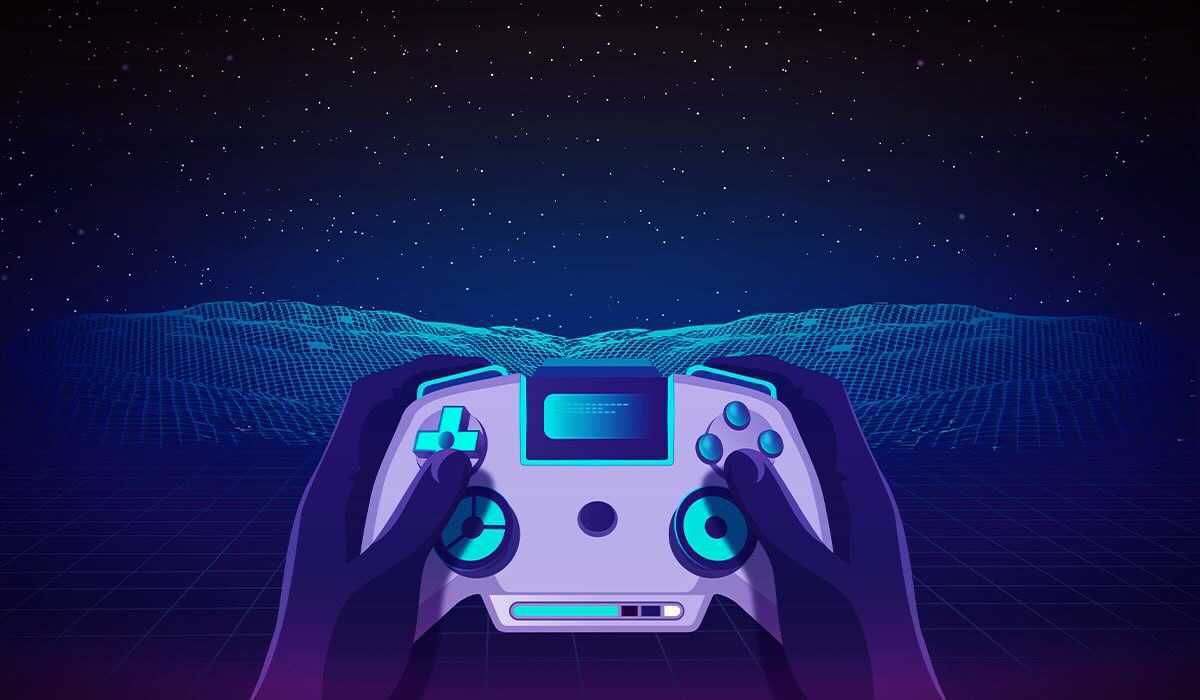Introduction
Gaming has always been a popular form of entertainment, but until now, the rewards for countless hours spent in virtual worlds were limited to in-game achievements or personal satisfaction. However, with the advent of blockchain games, gamers now have the opportunity to turn their passion into profit. By leveraging blockchain technology, these games offer a decentralized and transparent environment where players can truly own their in-game assets and monetize their gameplay.
Understanding Blockchain Games
Blockchain games are built on blockchain platforms, such as Ethereum or Binance Smart Chain, which provide a decentralized infrastructure for executing and validating transactions. These games utilize smart contracts to establish the rules and mechanisms governing gameplay, asset ownership, and value exchange. Unlike traditional games, blockchain games give players full control over their assets, enabling them to buy, sell, and trade items with other players in a secure and transparent manner.
Ownership and Authenticity
One of the significant advantages of blockchain games is the concept of true ownership and authenticity. In traditional games, players may spend significant amounts of time and money acquiring rare items or virtual currency, only to find their efforts wasted if the game servers shut down or the game is discontinued. In contrast, blockchain games store asset ownership information on the blockchain, ensuring that players have complete control and permanent ownership of their virtual assets.
In-Game Assets and Value
In blockchain games, in-game assets are represented as non-fungible tokens (NFTs), which are unique digital tokens that cannot be replicated or replaced. These NFTs can represent various items, such as weapons, armor, skins, or even virtual real estate. The scarcity and uniqueness of these assets contribute to their value, and players can freely trade them on blockchain-based marketplaces. This creates a vibrant economy where players can buy and sell in-game assets, earning real-world value in the process.
Play-to-Earn Model
Blockchain games introduce a play-to-earn model, allowing gamers to earn cryptocurrency or other digital assets by participating in gameplay activities. Through various mechanisms like completing quests, winning battles, or achieving milestones, players can accumulate rewards that have tangible value outside the game. Play-to-earn NFT games provide an incentive for players to invest time and effort into the game, knowing that their accomplishments can be monetized.
The Role of Non-Fungible Tokens (NFTs)
Non-Fungible Tokens (NFTs) play a crucial role in blockchain games. These tokens represent
unique and indivisible digital assets within the game. Each NFT is recorded on the blockchain, ensuring its scarcity and authenticity. These tokens can be bought, sold, and traded among players, allowing for a vibrant marketplace where the value of in-game assets can fluctuate based on supply and demand. The use of NFTs not only gives players a sense of true ownership but also enables them to participate in the growing ecosystem of digital collectibles and virtual economies.
Marketplaces and Trading
Blockchain games often incorporate decentralized marketplaces where players can trade their in-game assets directly with other players. These marketplaces eliminate the need for intermediaries or third-party platforms, ensuring a secure and transparent trading environment. Players have the freedom to set their own prices, negotiate deals, and execute transactions with ease. The decentralized nature of these marketplaces also opens up opportunities for players to engage in speculative trading, investing in valuable assets that may appreciate in value over time.
Rewards and Incentives
Blockchain games introduce innovative reward systems that incentivize players to engage with the game and contribute to its ecosystem. By completing specific tasks, achieving milestones, or participating in competitive gameplay, players can earn rewards in the form of digital assets or cryptocurrencies. These rewards can be used to enhance their gameplay experience, acquire rare items, or even converted them into real-world currencies. The ability to earn tangible rewards creates a more engaging and rewarding gaming experience for players.
Enhanced Gaming Experience
Blockchain games offer unique features that enhance the overall gaming experience. The integration of blockchain technology allows for provable fairness, ensuring that game outcomes are determined by transparent algorithms rather than centralized servers. Additionally, the ability to own and trade in-game assets adds a layer of depth and customization to gameplay. Players can personalize their characters, unlock rare items, and showcase their achievements, creating a sense of pride and accomplishment.
Security and Transparency
Blockchain technology provides enhanced security and transparency in gaming. By leveraging cryptographic algorithms and decentralized networks, blockchain games mitigate the risk of fraud, cheating, and unauthorized modifications. The immutability of the blockchain ensures that transactions and ownership records cannot be tampered with, providing players with a secure environment to buy, sell, and trade assets. Furthermore, the transparent nature of the blockchain allows players to verify the authenticity and history of in-game assets, fostering trust and confidence within the gaming community.
The Future of Blockchain Games
The future of blockchain games looks promising. As the technology continues to evolve and improve, we can expect more scalable solutions and innovative gameplay experiences. The integration of blockchain with emerging technologies like virtual reality (VR) and augmented reality (AR) holds immense potential, creating immersive and interactive gaming worlds. Furthermore, the adoption of blockchain games by mainstream gaming companies and the increasing interest from investors indicate a growing acceptance and recognition of the value proposition offered by this new paradigm.
Conclusion
Blockchain games have opened up new avenues for gamers to monetize their gameplay and revolutionize the gaming industry. By leveraging blockchain technology, these games empower players with true ownership, transparent trading, and tangible rewards. The play-to-earn model, the use of non-fungible tokens, and the decentralized marketplaces have transformed gaming into a lucrative endeavor where players can earn real-world value from their virtual adventures. The enhanced gaming experience, security, and transparency provided by blockchain technology have further cemented its role in shaping the future of gaming.


No comments yet